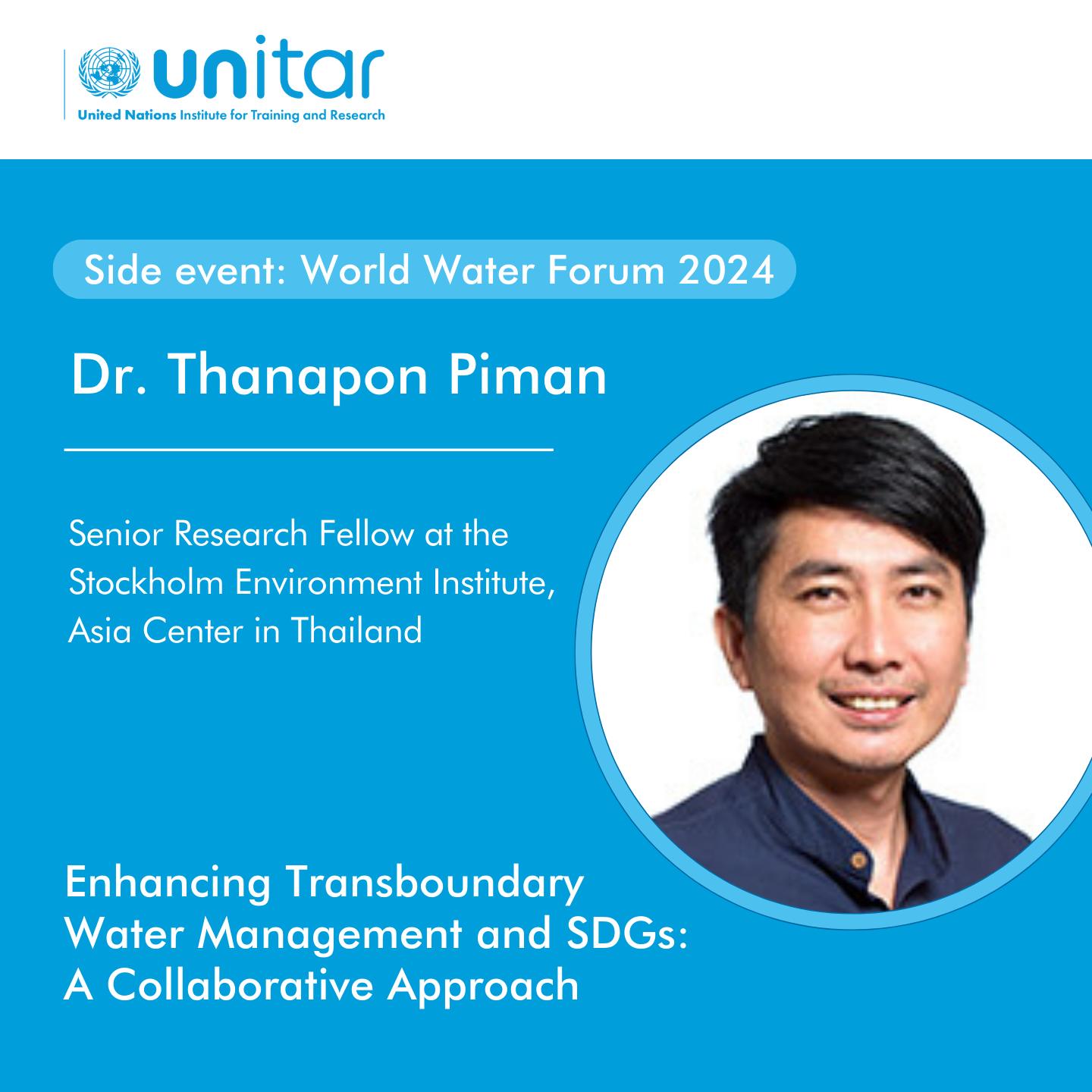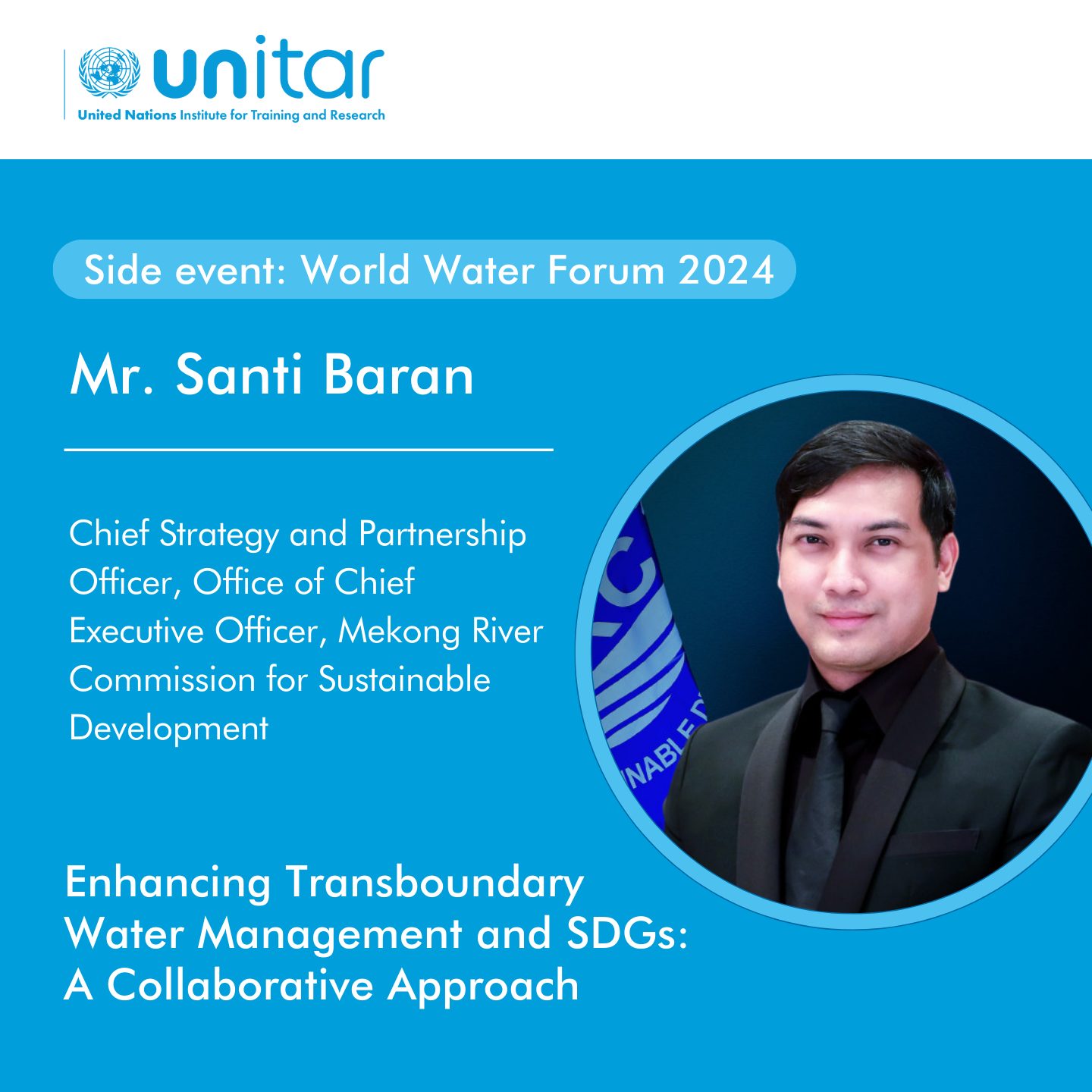Enhancing Transboundary Water Management and SDGs
Background
The session presented by the United Nations Institute for Training and Research (UNITAR), and its affiliated regional CIFAL Centres (CIFAL Singapore, and CIFAL Bangkok) aims to bridge two critical aspects of global water challenges: transboundary water management and the United Nations SDGs, particularly SDG 6. This aim acts in alignment with the overall vision of UNITAR’s Global Water Academy (UGWA), which has the goal to identify capacity gaps that hinder the effective implementation of SDG 6 targets, and co-create innovative solutions to address them.
UGWA partners from Nangyang Technological University (CIFAL Singapore), and Asian Institute of Technology (CIFAL Bagkok), will address these capacity gaps by leveraging data-driven strategies and interdisciplinary collaborations. In particular, the event will explore actionable solutions to address water scarcity, pollution, and equitable access, with a focus on Southeast Asia. Recognizing the urgency of climate change impacts on water resources, the session will highlight the importance of hydro diplomacy, innovative engineering solutions, and inclusive governance mechanisms in achieving shared water prosperity. Through presentations and a dynamic panel discussion, participants will gain insights into cutting-edge research, successful case studies, and collaborative strategies to advance SDG 6 targets and foster sustainable water management practices.
A central focus of our session is to highlight new initiatives and research, emphasizing data-driven strategies for the enhancement of water resources management in the face of climate change. These efforts underscore a strong commitment to actionable solutions that empower stakeholders across various geographical divides. By sharing these insights, we aim to advance climate-resilient water management practices, tailored to suit a variety of transboundary situations.
Following the presentations, a dynamic, moderated discussion will encourage interaction with the audience, fostering an exchange of ideas, experiences, and perspectives. The panel discussion will shed light on the critical nexus between the UN SDGs, particularly SDG 6, and the future of global water resources. By leveraging scientific expertise, engineering ingenuity, and policy advocacy, the session aims to collectively work toward ensuring sustainable water management practices that leave no one behind.
Learning Objectives
- Increased awareness of the critical nexus between transboundary water management and SDGs.
- Enhanced understanding of data-driven strategies and scalable solutions for sustainable water management.
- Identification of opportunities for cross-sectoral collaboration and partnerships to accelerate progress on SDG 6 in Southeast Asia.
- Inspiration for actionable initiatives and policy reforms to address water challenges and promote shared water prosperity.
Speakers









